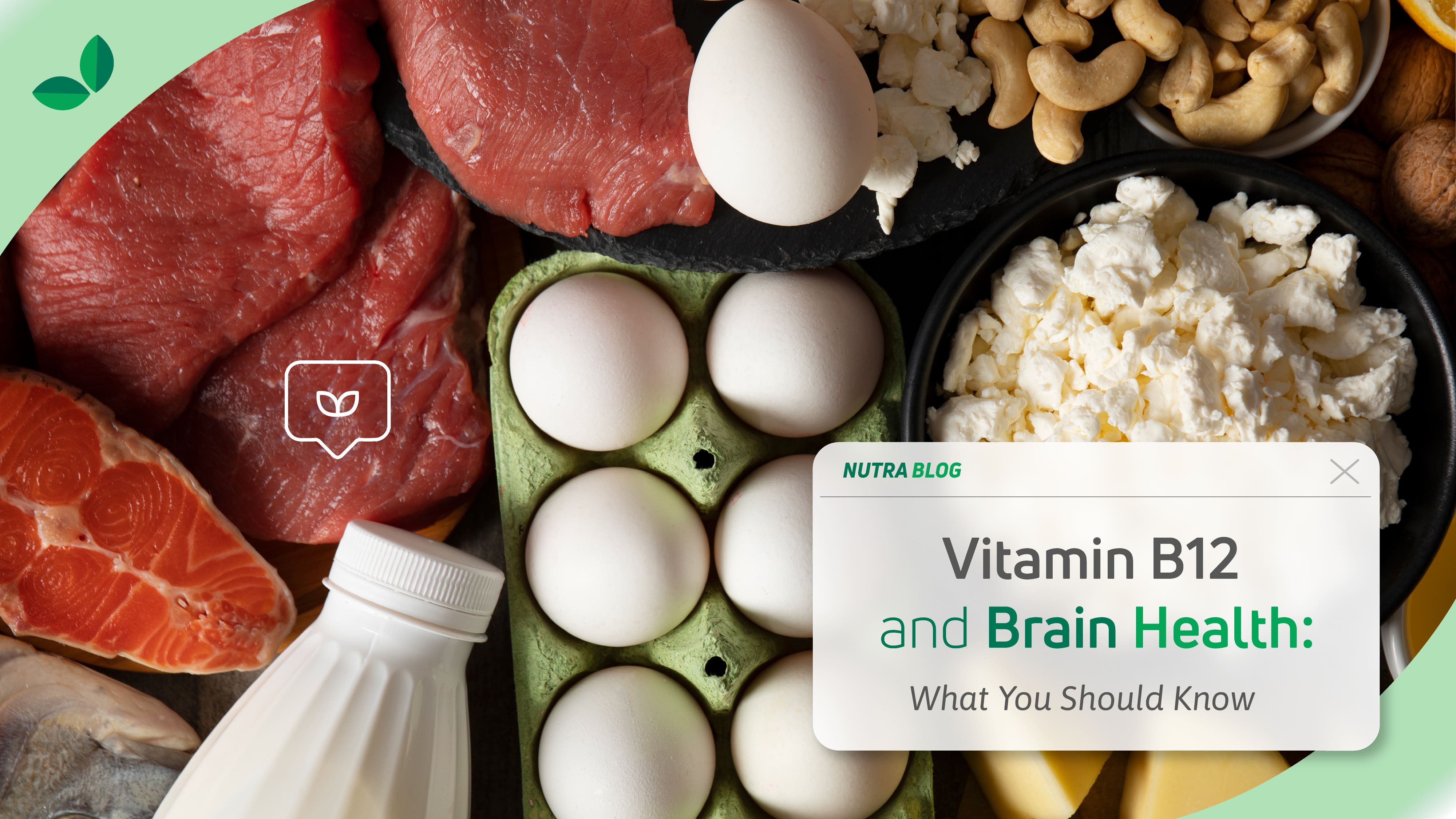Vitamin B12 and Brain Health: What You Should Know
- Home
- Nutra Blog: Health and Nutrition
- Vitamin B12 and Brain Health: What You Should Know

Vitamin B12 and Brain Health: What You Should Know
Jun 21, 2025
By
Nutra Llc
0 comment(s)
What Is Vitamin B12 and What Does It Do?
Vitamin B12 (cobalamin) is a water-soluble vitamin essential for red blood cell production, DNA synthesis, and nerve health. However, its role in the nervous system makes it especially vital for brain health. It helps maintain the myelin sheath—the protective covering around nerves that allows signals to travel quickly and smoothly through the brain and spinal cord.
Without enough B12, this communication process slows down, which can lead to cognitive decline, mood changes, and neurological symptoms.
Vitamin B12 and Cognitive Function
Multiple studies suggest that low levels of vitamin B12 are associated with poor memory, slower thinking, and even dementia in older adults. A 2022 systematic review found that B12 supplementation had a modest but significant effect on improving cognitive function in people with existing deficiencies (Lachner et al., 2022).
While vitamin B12 is not a cure for cognitive decline, maintaining adequate levels appears to support mental clarity, especially in older adults or those with restricted diets (like vegans or vegetarians).
B12 and Brain Development
Vitamin B12 is critical for children and infants. A deficiency in early life can lead to delays in motor development, learning difficulties, and long-term neurocognitive effects. A 2023 systematic review emphasized that insufficient B12 intake during key developmental stages may affect brain growth and motor skill acquisition (Gonzalez et al., 2023).
This highlights the importance of ensuring sufficient B12 levels in adults and during pregnancy, infancy, and early childhood.
Mood, Energy, and B12
Beyond memory and learning, B12 also affects how we feel. Studies show that low levels of B12 are linked to symptoms of depression and fatigue. In a 2022 meta-analysis, participants with B12 supplementation reported improvements in mood and reduced symptoms of depression and tiredness over time (Bourre et al., 2022).
This may be due to B12's role in synthesizing neurotransmitters like serotonin and dopamine—the brain chemicals influencing mood, motivation, and energy.
How to Maintain Healthy B12 Levels
Your body does not produce vitamin B12 on its own. It must come from food or supplements. Good dietary sources include:
● Meat, poultry, and fish
● Eggs and dairy products
● Fortified cereals or plant-based milks (for vegans)
Those at higher risk of deficiency include:
● Adults over 50 (due to lower stomach acid production)
● People with gastrointestinal conditions (like Crohn's or celiac disease)
● Individuals on strict vegetarian or vegan diets
In these cases, vitamin B12 supplements or B12 injections may be recommended to meet the daily requirement and support long-term brain health.
Final Thoughts
Whether you are focused on keeping your memory sharp, supporting your child's development, or improving mood and energy, vitamin B12 is a key piece of the puzzle. As a critical brain nutrient, it help to keep your mind focused, alert, and resilient.
If you suspect a deficiency or fall into a higher-risk group, talk to your healthcare provider about testing your B12 levels and whether supplementation is proper for you.
References (APA Style)
Bourre, J. M., Lachner, C., Schneede, J., & Refsum, H. (2022). Effects of Vitamin B12 Supplementation on Cognitive Function, Depressive Symptoms, and Fatigue: A Systematic Review, Meta-Analysis, and Meta-Regression. Journal of Nutrition, 152(3), 512–521.
Gonzalez, M., Requejo, A., & Serra-Majem, L. (2023). Relationship between vitamin B12 levels and motor development: A systematic review. Nutrients, 15(1), 12-18.
Lachner, C., Steinle, N. I., & Regenold, W. T. (2022). Vitamin B12 and cognitive function: An evidence-based analysis. Neuropsychiatric Disease and Treatment, 18, 1371–1381.
*Disclaimer: Statements made, or products sold through this website, have not been evaluated by the United States Food and Drug Administration.
They are not intended to diagnose, treat, cure or prevent any disease.
